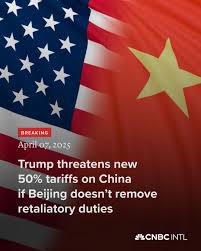The Impact of China Tariffs on Global Trade

Introduction
China tariffs have become a crucial topic in discussions about international trade and economic relations. With the ongoing trade tensions between the United States and China, tariffs imposed on various goods have significant implications for global markets. Understanding these tariffs is vital for businesses, consumers, and policymakers as they navigate the evolving dynamics of international trade.
The Current Landscape of China Tariffs
As of October 2023, China continues to impose tariffs on a wide range of imports, particularly from the United States, as a response to previous trade actions and as a means to protect its domestic industries. In 2022, China’s Ministry of Finance announced revisions to its tariff policies aimed at fostering economic growth and enhancing competitiveness. These policies included adjustments to both existing tariffs and the introduction of new tariffs on specific goods.
For example, certain agricultural products and consumer goods face increased tariffs, which directly impacts prices for consumers. The U.S. has also maintained tariffs on Chinese imports, leading to a tit-for-tat tariff war that escalated tensions and created uncertainty within global supply chains.
Effects on Global Trade
The impact of China tariffs extends beyond the immediate economies involved. Global supply chains have been disrupted, leading to increased costs for manufacturers and consumers alike. According to a report by the World Bank, tariffs not only affect the targeted goods but also raise prices for millions of other products that rely on the affected materials. Additionally, companies are compelled to seek alternative suppliers or relocate their production, further complicating international trade relationships.
Outlook for the Future
Looking ahead, analysts predict that the landscape of tariffs will continue to evolve. With the possibility of negotiations between China and the U.S., there may be opportunities to resolve some existing tariffs or at least modify their impact on trade. However, experts also caution that geopolitical tensions could lead to further imposition of tariffs and trade barriers across various sectors.
Conclusion
The significance of China tariffs cannot be understated. As global trade dynamics shift, businesses and consumers must remain vigilant about the evolving tariff landscape. For policymakers, striking a balance between protecting domestic interests and maintaining healthy trade relations will be pivotal in shaping the future of global commerce. Understanding these dynamics is crucial for UK businesses engaged with China and those in the global market, as they navigate the potential challenges and opportunities presented by tariffs.








